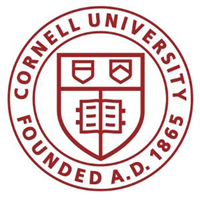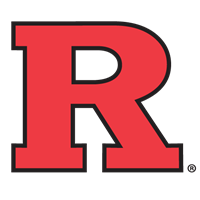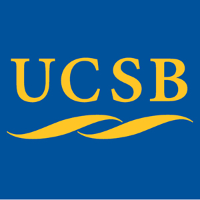What do they do?
Inspect and investigate sources of pollution to protect the public and environment and ensure conformance with Federal, State, and local regulations and ordinances.
Also known as:
Air Permitting and Enforcement Inspector, Air Pollution Inspector, Compliance Investigator, Enforcement Officer, Environmental Compliance Inspector, Environmental Inspector, Environmental Protection Specialist, Environmental Quality Analyst, Industrial Waste Inspector, Resource Conservation and Recovery Act Enforcement Officer (RCRA Enforcement Officer), Toxics Program Officer, Waste Management Specialist
-
5.4%
Change
Ranks #41 in job growth rate740Job Openings
Ranks #21 in net job growth
-
Cornell University
Ithaca, NY
-
Rutgers University-New Brunswick
New Brunswick, NJ
-
University of Vermont
Burlington, VT
-
Middlebury College
Middlebury, VT
-
University of California-Santa Barbara
Santa Barbara, CA
Looking for colleges that offer a specific major? Use the College Match Tool to find your best-matched schools and discover your estimated Net Price!
- Doctorate or Professional Degree (6%)
- Master's degree (18%)
- Bachelor's degree (40%)
- Associate's degree (8%)
- Some college, no degree (18%)
- High school diploma equivalent (9%)
- Less than high school diploma (1%)
Most Popular Majors that prepare Environmental Compliance Inspectors
-
#1
-
Degrees Granted
7,452
-
Female Students
4,388
-
Male Students
3,064
-
Median Starting Salary
$43,300
-
-
#2
-
Degrees Granted
6,961
-
Female Students
4,472
-
Male Students
2,489
-
Median Starting Salary
$44,450
-
-
#3
-
Degrees Granted
6,498
-
Female Students
4,737
-
Male Students
1,761
-
Median Starting Salary
$40,400
-
-
#4
-
Degrees Granted
915
-
Female Students
494
-
Male Students
421
-
Median Starting Salary
$40,400
-
People in this career often have these skills:
- Reading Comprehension - Understanding written sentences and paragraphs in work-related documents.
- Critical Thinking - Using logic and reasoning to identify the strengths and weaknesses of alternative solutions, conclusions, or approaches to problems.
- Active Listening - Giving full attention to what other people are saying, taking time to understand the points being made, asking questions as appropriate, and not interrupting at inappropriate times.
- Writing - Communicating effectively in writing as appropriate for the needs of the audience.
- Speaking - Talking to others to convey information effectively.
- Active Learning - Understanding the implications of new information for both current and future problem-solving and decision-making.
- Monitoring - Monitoring/Assessing performance of yourself, other individuals, or organizations to make improvements or take corrective action.
- Complex Problem Solving - Identifying complex problems and reviewing related information to develop and evaluate options and implement solutions.
- Operations Monitoring - Watching gauges, dials, or other indicators to make sure a machine is working properly.
- Judgment and Decision Making - Considering the relative costs and benefits of potential actions to choose the most appropriate one.
- Systems Evaluation - Identifying measures or indicators of system performance and the actions needed to improve or correct performance, relative to the goals of the system.
People in this career often know a lot about:
- English Language - Knowledge of the structure and content of the English language including the meaning and spelling of words, rules of composition, and grammar.
- Law and Government - Knowledge of laws, legal codes, court procedures, precedents, government regulations, executive orders, agency rules, and the democratic political process.
- Computers and Electronics - Knowledge of circuit boards, processors, chips, electronic equipment, and computer hardware and software, including applications and programming.
- Chemistry - Knowledge of the chemical composition, structure, and properties of substances and of the chemical processes and transformations that they undergo. This includes uses of chemicals and their interactions, danger signs, production techniques, and disposal methods.
- Customer and Personal Service - Knowledge of principles and processes for providing customer and personal services. This includes customer needs assessment, meeting quality standards for services, and evaluation of customer satisfaction.
People in this career often have talent in:
- Problem Sensitivity - The ability to tell when something is wrong or is likely to go wrong. It does not involve solving the problem, only recognizing that there is a problem.
- Oral Comprehension - The ability to listen to and understand information and ideas presented through spoken words and sentences.
- Written Comprehension - The ability to read and understand information and ideas presented in writing.
- Oral Expression - The ability to communicate information and ideas in speaking so others will understand.
- Deductive Reasoning - The ability to apply general rules to specific problems to produce answers that make sense.
- Inductive Reasoning - The ability to combine pieces of information to form general rules or conclusions (includes finding a relationship among seemingly unrelated events).
- Written Expression - The ability to communicate information and ideas in writing so others will understand.
- Flexibility of Closure - The ability to identify or detect a known pattern (a figure, object, word, or sound) that is hidden in other distracting material.
- Near Vision - The ability to see details at close range (within a few feet of the observer).
- Information Ordering - The ability to arrange things or actions in a certain order or pattern according to a specific rule or set of rules (e.g., patterns of numbers, letters, words, pictures, mathematical operations).
- Category Flexibility - The ability to generate or use different sets of rules for combining or grouping things in different ways.
- Speech Recognition - The ability to identify and understand the speech of another person.
- Speech Clarity - The ability to speak clearly so others can understand you.
- Perceptual Speed - The ability to quickly and accurately compare similarities and differences among sets of letters, numbers, objects, pictures, or patterns. The things to be compared may be presented at the same time or one after the other. This ability also includes comparing a presented object with a remembered object.
People in this career often do these activities:
- Investigate legal issues.
- Prepare legal or investigatory documentation.
- Testify at legal or legislative proceedings.
- Maintain data in information systems or databases.
- Prepare regulatory or compliance documentation.
- Coordinate enforcement of laws or regulations.
- Interview witnesses, suspects, or claimants.
- Explain regulations, policies, or procedures.
- Inform individuals or organizations of status or findings.
- Monitor the handling of hazardous materials or medical wastes.
- Dispose of hazardous materials.
- Inspect facilities or equipment to ensure specifications are met.
- Update professional knowledge.
- Monitor organizational compliance with regulations.
- Review license or permit applications.
- Gather physical survey data.
- Compile technical information or documentation.
- Analyze environmental regulations to ensure organizational compliance.
- Research issues related to the environment or sustainable business practices.
- Examine product information to ensure compliance with regulations.
- Update knowledge of legal or regulatory environments.
- Correspond with customers to answer questions or resolve complaints.
- Prepare financial documents.
- Advise others on business or operational matters.
- Test chemical or physical characteristics of materials or products.
- Test fluids to identify contamination or other problems.
- Communicate with the public on environmental issues.
- Communicate results of environmental research.
- Maintain facilities.
- Maintain mechanical equipment.
- Maintain electronic equipment.
- Establish organizational guidelines or policies.
- Calculate data to inform organizational operations.
This page includes data from:

 Occupation statistics: USDOL U.S. Bureau of Labor Statistics Occupational Employment Statistics
Occupation statistics: USDOL U.S. Bureau of Labor Statistics Occupational Employment Statistics









